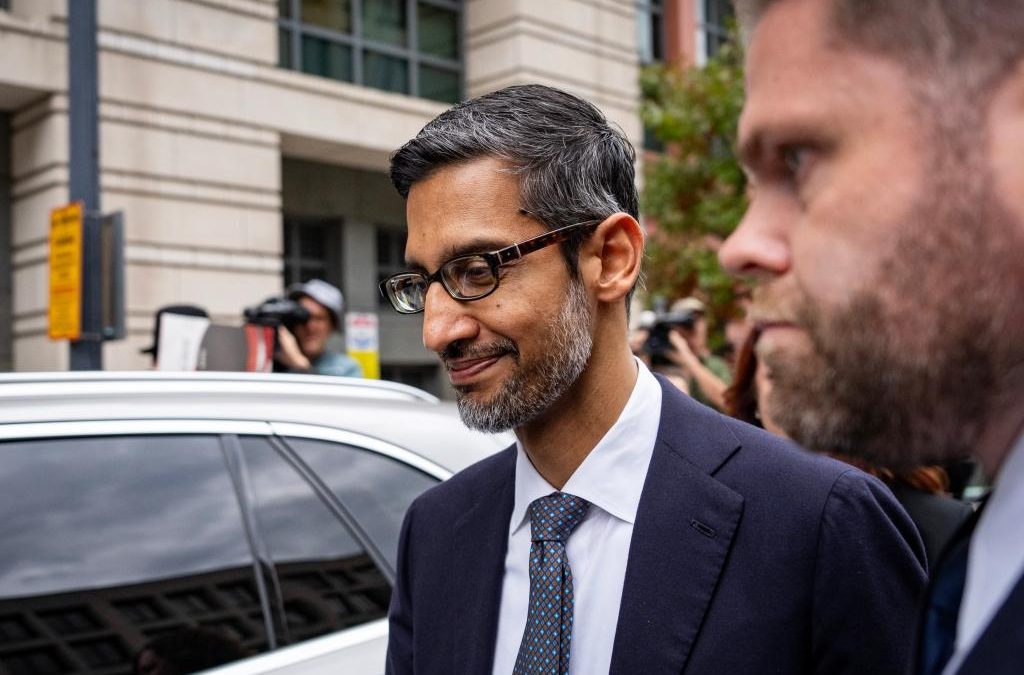Google CEO Sundar Pichai is set to defend his company’s controversial app store practices next week during a court battle with “Fortnite” maker Epic Games — marking the second time in three weeks that the Big Tech firm’s boss has testified at a major antitrust trial.
Epic’s attorneys are expected to grill Pichai in San Francisco federal court on Tuesday, a company spokesperson told Bloomberg.
The video game publisher has accused Google of maintaining an illegal monopoly over the Android app marketplace through its “Play” store.
Pichai could face questions for up to an hour – and is likely to be pressed on Google’s payments to major developers such as Activision-Blizzard and Riot Games dating back to 2020.
Epic alleges that the payment strategy, known as “Project Hug,” was a “bribe and block” scheme meant to dissuade companies from creating their own app stores.
Meanwhile, Google’s attorneys are expected to ask Pichai for roughly 30 minutes about competition the company faces from other app stores, among other topics.
The company has asserted that its payments were necessary moves to stave off challenging by Apple’s App Store and other similar marketplaces.
Pichai has been front and center as Google scrambles to stave off an array of regulatory challenges.
Last month, the Justice Department questioned Pichai about Google’s destruction of internal chat logs as part of its landmark attempt to break up the company’s online search empire.
Google CFO Ruth Porat and Epic Games CEO Tim Sweeney are also expected to testify at the app store antitrust trial. The case is expected to last for approximately four weeks and conclude in early December.

Earlier in the trial, the 10-person jury was told that Google once gave “Call of Duty” parent Activision-Blizzard a whopping $360 million in incentives to launch its video game on the Play store.
At the time, Activision CEO Bobby Kotick had purportedly grumbled about Google’s policy of taking a 30% cut of revenue from in-app purchases.
The lawsuit dates back to 2020, when “Fortnite” was removed out of the Google Play store after Epic enabled a feature allowing customers to pay it directly.
Epic filed a similar lawsuit against Apple, which resulted in a split verdict that mostly favored Apple. Both companies have appealed that ruling to the Supreme Court.
Source




